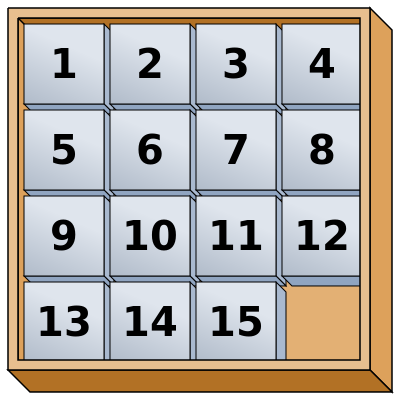Sometimes things break
22 Dec 2014I was very surprised to find the lispy build broken after I pushed some minor update, like a change to README.md. I mean, how in the world would a few words in README.md break the Elisp tests? Upon investigation, it turned out that only one test was broken 1. This one:
(ert-deftest clojure-thread-macro ()
(require 'cider)
(should
(string=
(lispy-with
"|(map sqr (filter odd? [1 2 3 4 5]))" "2(->>]<]<]wwlM")
"(->> [1 2 3 4 5]\n (map sqr)\n (filter odd?))|")))
The culprit was an update in clojure-mode's indentation.
The previous behavior:
(->> [1 2 3 4 5]
(map sqr)
(filter odd?))
is now replaced with:
(->> [1 2 3 4 5]
(map sqr)
(filter odd?))
Thankfully, the Travis CI in combination
with cask is keeping me up to date.
Apparently, there were some
heated discussions
accompanying the change, and there was some reverting going on.
Anyway, it looks to me that both approaches have merit: the first one
is more logical, since ->> is an operation akin to Elisp's
with-current-buffer, where the first argument is different from the
others, while the second one is more aesthetically pleasing. Fine
with me either way, I'm not complaining:)
Also, the key sequence in the test is pretty ancient. These days I'd
probably use:
2(->>C-fd<j<skwAM. I've
recently done a more complex Elisp refactoring screencast, check it
out here. Later on, I
plan to do more Emacs-related screencasts (not just lispy-related)
on my channel.
If you haven't tried lispy yet, you're missing out -
doing this refactor operation feels like you're doing the 15-number puzzle:

And that's fun in my book. But let me get back to the short overview
of the Emacs testing tools that lead me to this post, mainly cask.
cask: what does it do?
According to its own documentation:
Cask is a project management tool for Emacs Lisp to automate the package development cycle; development, dependencies, testing, building, packaging and more.
Yes, please, I'd like to do that! But after the exciting intro
sentence, there's very little followup documentation-wise. It took me
ages to figure out how cask can actually give me some tangible
benefits, since I thought that package.el is enough to maintain my
own config (it still is).
tangible benefits of cask
I'd like to be sure that my packages work across recent Emacs
versions. I'm using the
bleeding edge myself, but
people who download my packages from MELPA might be using something
older, like emacs-24.3.
So I want to run my tests on both versions. Also, even for just one version, the tests need to be run in a minimum environment, i.e. with only the dependencies loaded, so that my personal configuration does not interfere with the tests.
This is where cask actually shines: it can bootstrap a whole new
.emacs.d, separate from your own, just for running tests. It can do
it on your machine as well as on Travis CI.
Here's my Cask file for lispy:
(source gnu)
(source melpa)
(package-file "lispy.el")
(files "*.el" (:exclude "init.el" "lispy-test.el"))
(development
(depends-on "helm")
(depends-on "ace-jump-mode")
(depends-on "noflet")
(depends-on "iedit")
(depends-on "multiple-cursors")
(depends-on "cider")
(depends-on "slime")
(depends-on "geiser")
(depends-on "projectile")
(depends-on "s")
(depends-on "highlight"))
And here's the Makefile:
EMACS = emacs
# EMACS = emacs-24.3
CASK = ~/.cask/bin/cask
CASKEMACS = $(CASK) exec $(EMACS)
LOAD = -l lispy-inline.el -l lispy.el -l lispy-test.el
all: test
cask:
$(shell EMACS=$(EMACS) $(CASK))
compile:
$(CASKEMACS) -q $(LOAD) lispy.el \
--eval "(progn (mapc #'byte-compile-file '(\"lispy.el\" \"lispy-inline.el\" \"le-clojure.el\" \"le-scheme.el\" \"le-lisp.el\")) (switch-to-buffer \"*Compile-Log*\") (ert t))"
test:
$(CASKEMACS) -batch $(LOAD) -f ert-run-tests-batch-and-exit
clean:
rm -f *.elc
As you can see, the Makefile has two separate testing targets: an
interactive one (compile) and a non-interactive one (test).
There's actually some validity to this, since it happened once that
the same tests we failing in non-interactive mode, but passing in
interactive mode. Also, compile obviously compiles, testing for
compilation warnings/errors. I can change the Emacs version at the
top, although I don't have to do it too often.
Finally, here's .travis.yml:
language: emacs-lisp
env:
matrix:
- EMACS=emacs24
before_install:
- sudo add-apt-repository -y ppa:cassou/emacs
- sudo apt-get update -qq
- sudo apt-get install -qq $EMACS
- curl -fsSkL --max-time 10 --retry 10 --retry-delay 10 https://raw.github.com/cask/cask/master/go | python
script:
- make cask
- make test
So each time I push a change to github, Travis CI will
- install emacs24
- install cask
- install the packages from MELPA:
helmace-jump-modenofletieditmultiple-cursorsciderslimegeiserprojectileshighlight
- load Emacs with these packages
- load
lispy-test.eland run it - show up green if
make testreturned0
Seems a bit wasteful, but it's the Cloud - what can you do?
-
upon even further investigation, the test itself was broken for almost a year, since
lispy-with-clojureshould have been used instead oflispy-with, butciderwas changing the indentation of->>also foremacs-lisp-mode, so things were kind of working out ↩
